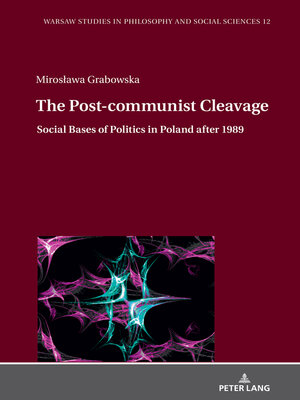The Post-communist Cleavage.
ebook ∣ Social Bases of Politics in Poland after 1989 · Warsaw Studies In Philosophy and Social Sciences
By Tadeusz Szawiel

Sign up to save your library
With an OverDrive account, you can save your favorite libraries for at-a-glance information about availability. Find out more about OverDrive accounts.
Find this title in Libby, the library reading app by OverDrive.



Search for a digital library with this title
Title found at these libraries:
| Library Name | Distance |
|---|---|
| Loading... |
The book begins with a discussion of Lipset-Rokkan's theory of cleavages and its continuations. The author's interpretation of this theory is applied to a historical context: the communist system that divided society into communist and anti-communist sides. They survived the fall of communism, resulting in the post-communist cleavage. This cleavage manifested itself in social identities, electoral behavior, the shape of the party system and the attitudes of party elites. The problem of generalizing Lipset-Rokkan's theory is considered – its scope and applicability to the various post-communist countries. The problem of persistence is also discussed – the post-communist cleavage was sustained by various factors, but also weakened by the actions and choices made by the party elites.







